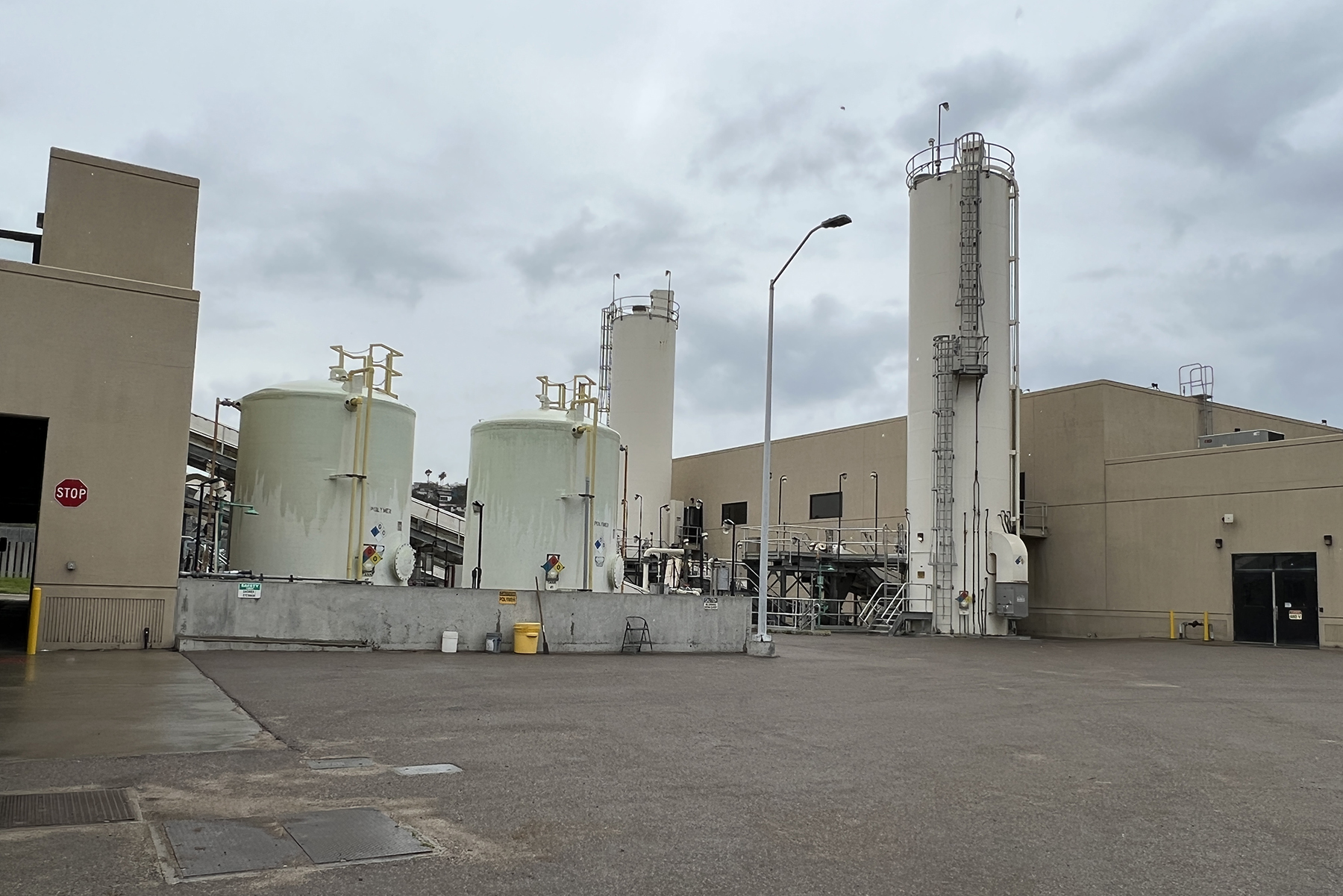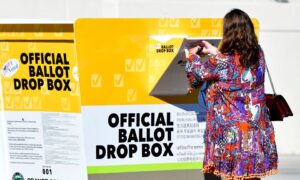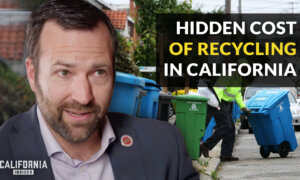SAN DIEGO—A lawsuit was announced Monday on behalf of a group of South Bay residents affected by raw sewage allegedly discharged from the South Bay International Wastewater Treatment Plant and flowing into the waters of southern San Diego County.
The complaint filed Friday in San Diego Superior Court alleges Veolia, which was contracted by the International Boundary and Water Commission to operate, manage and maintain the plant, has failed to prevent hundreds of such sewage discharges over the years.
The California Coastal Commission reported last year that more than 100 billion gallons of transboundary flows have been discharged from Mexico into Southern California over the past five years, and the complaint alleges, “Much of this contamination is directly attributable to the defendants’ failures.”
Veolia issued a statement in response, saying it has properly maintained the plant and that the U.S. and Mexican governments have failed to fund or implement solutions, such as additional infrastructure to help manage a surge in “unprecedented” sewage flows.
In a separate statement issued last month, Veolia said a population boom in Tijuana has also played a large role in contributing to a volume of transboundary flows the plant wasn’t originally designed to handle.
“San Diego’s environmental crisis is caused by unprecedented, uncontrolled flows of sewage and debris from Tijuana, and a critical lack of government funding and resources on both sides of the border to repair equipment and build additional capacity,” Veolia’s statement issued Monday read. “No amount of dishonest rhetoric from opportunistic lawyers can change these facts, and we will defend ourselves against their baseless accusations. Veolia has done an excellent job helping to operate the South Bay International Wastewater Treatment Plant despite these challenges, and we look forward to working with our government partners to help bring about a long-term solution.”
The complaint names four people allegedly affected by the pollutants as plaintiffs, but attorneys say they expect “hundreds” of additional plaintiffs in the near future. The Frantz Law Group, which filed the lawsuit, says it is looking into filing additional litigation on behalf of a number of school districts situated in the South Bay.
Along with health concerns—such as headaches, nausea and respiratory issues—attorneys said the pollutants have led directly to numerous beach closures, boil water notices and requirements on keeping South Bay schoolchildren indoors in order to prevent exposure to the contaminants.
The complaint states that through the various spills, leaks and discharges of sewage, Veolia is in violation of its state permits under the Federal Clean Water Act.
James Frantz, of Frantz Law Group, said his firm is “seeking significant monetary damages for the community,” to include medical monitoring of those exposed to pollutants.
Frantz said in a statement, “The residents of Imperial Beach are tired of hearing the decades old ‘broken promises’ of a company knowingly dumping billions of gallons of raw sewage on their beaches and in their estuary causing continuous beach closures, surfers and beachgoers getting sick, as well as individuals and families being constantly subjected to airborne pathogens and noxious odor.”
Local leaders continue to grapple with the sewage crisis and have sought assistance from the federal government in securing funding to mitigate the sewage flows.
San Diego County and various cities across the county have requested the declaration of a national state of emergency and the San Diego County Board of Supervisors voted last month to potentially pursue litigation of its own.
$310 Million in Proposed Disaster Relief
On Tuesday, San Diego’s congressional delegation applauded President Joe Biden for including $310 million for the South Bay International Wastewater Treatment Plant in proposed disaster relief funding.If passed, the money would add to a previously awarded $400 million in federal funding to get the plant running at full capacity and even double its capabilities.
“After our continued calls for action, I’m glad to see President Biden demonstrate yet again that addressing this pollution is a key priority,” Rep. Juan Vargas (D-San Diego) said in a statement. “We know there’s more work to do. This funding must get through both the House and the Senate. But to all the members of our community who have joined us and raised their voices about the impacts of this terrible pollution, your advocacy is making a difference. Leaders at the highest level of government are listening.”
In May, the local Congressional delegation, including Vargas and Reps. Scott Peters and Sara Jacobs, both Democrats from San Diego, and Rep. Mike Levin (D-Dana Point) called on the U.S. Centers for Disease Control and Prevention (CDC) to begin an investigation into pollutants from the ongoing sewage crisis at the border.
Around 2,000 South County residents have responded to a survey by the CDC, open through next Friday.
The Assessment of Chemical Exposures was started by the county in partnership with the CDC’s Agency for Toxic Substances and Disease Registry in October. The goal was to receive feedback from people who live, work or play in south county about how the ongoing sewage pollution crisis has affected them.
“Our San Diego congressional delegation has worked tirelessly to draw national attention and bring home federal funds to address the Tijuana River Valley crisis—the biggest environmental and public health disaster in our community,” Jacobs said in a statement. “I’m so proud our hard work is paying off from breaking ground on the repair and expansion project at the South Bay International Wastewater Treatment Plant to securing $310 million in President Biden’s supplemental budget package. We will keep pushing until this crisis is resolved.”
The San Diego congressional delegation also called on the Environmental Protection Agency to support the San Diego County Air Pollution Control District to monitor the air quality in communities impacted by Tijuana River Valley pollution.
“The best time to deal with the Tijuana River Valley toxic sewage crisis was years ago. The second-best time is today,” Levin said. “This money will help repair and expand the South Bay International Wastewater Treatment Plant, bolstering our efforts to prevent pollution from continuing to contaminate our beaches and ecosystems.”
In early September, high levels of noxious gases such as hydrogen sulfide and hydrogen cyanide were measured by scientific teams in the river valley and noticed by residents due to the rotten egg smell even miles from the border. Ultimately, crews from San Diego County determined there was no immediate health risk, but many residents believed the crisis had reached a turning point.
“This crisis has polluted San Diego’s waters, poisoned the health of its citizens, and endangered our local economy, and we must pass this emergency funding now to ensure San Diegans no longer endure this injustice,” Peters said. “I urge Congressional leadership to take this up immediately so that the victims of this crisis and those of the recent hurricanes can receive the relief they need.”
Biden’s proposed disaster relief package tops out at more than $98 billion, most of which would go to areas ravaged by back-to-back hurricanes Helene and Milton.














